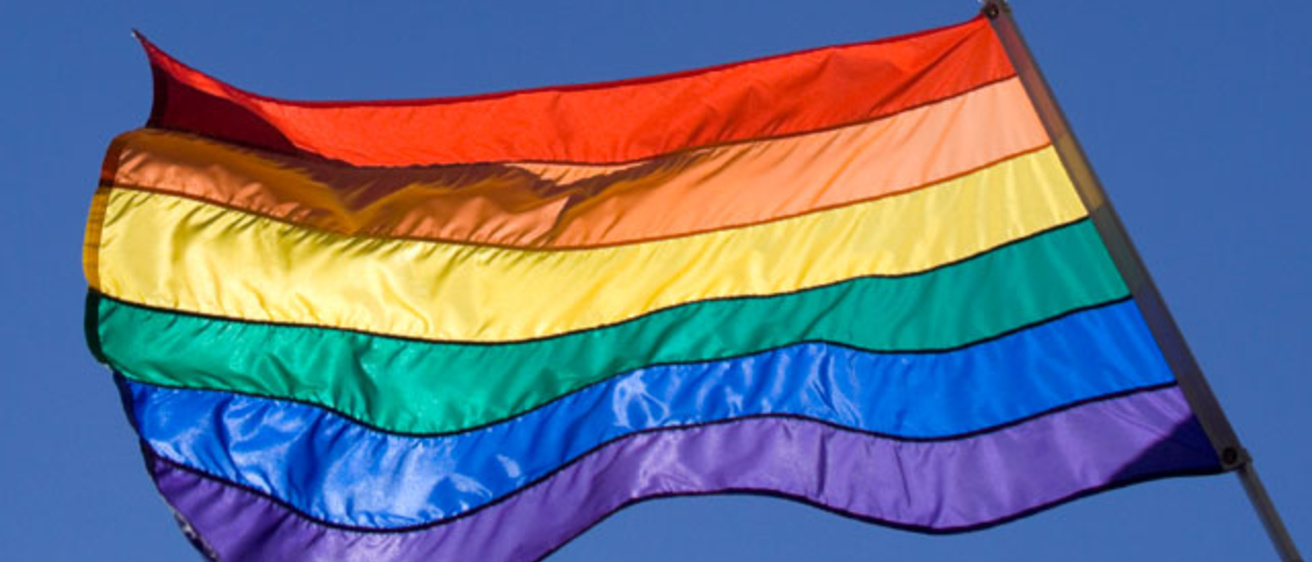The University of Iowa has historically been a place of firsts—the first U.S. public university to admit men and women on an equal basis, the first state university to officially recognize the Lesbian, Gay, Bisexual, Transgender, and Allied Union (LGBT), and the first public university to offer insurance benefits to employees' domestic partners.
The UI now adds to that list by becoming the first public institution in the nation—and the second U.S. institution of higher education—to specifically include optional questions about students' sexual orientation and gender identity in their application for admission.
The UI Office of Admissions started asking these optional questions this fall.
"Our ultimate goal is to create an environment where all personal identities are celebrated, and increased visibility is certainly one way to help eliminate stigma."
—Georgina Dodge, UI Chief Diversity Officer
“In the UI’s strategic plan, The Iowa Promise, we state seven core values which guide every aspect of our mission: excellence, learning, community, diversity, integrity, respect, and responsibility," says Michael Barron, assistant provost for enrollment management and executive director of admissions. "The new LGBT question on our undergraduate application reflects our foundational commitment to inclusion of all students, no matter what their origin or orientation.”
UI Chief Diversity Officer and Associate Vice President Georgina Dodge says inviting students to provide this information will help with both student success and retention.
"LGBTQ students are important members of our campus community, and we want to provide them with an opportunity to identify themselves in order to be connected to resources and to build networking structures," Dodge says.
Dodge adds that UI administrators recognize that not everyone will wish to identify.
"But for those who do, we want to demonstrate our appreciation of the diverse contributions they bring to our community," Dodge says. "Our ultimate goal is to create an environment where all personal identities are celebrated, and increased visibility is certainly one way to help eliminate stigma."
UI administrators in a variety of offices across campus discussed this idea for some time. Jake Christensen, a UI alumnus and senior admission counselor with the UI Admissions Office, was asked to oversee the completion of the Campus Pride Index. (See a related feature story on Christensen at now.uiowa.edu/2012/12/coming-out-campus.)
Adding these optional questions to the UI application for admission was seen as an important step in achieving an even higher ranking on the Campus Pride Index, which measures LGBT friendliness of college and university campuses, Dodge says.
Representatives of Campus Pride, the nation's leading educational organization for student leaders and campus groups working to create a safer college environment for LGBT students, praised the decision.
"The move by UI administrators to include this question represents a growing paradigm shift in higher education to actively recognize out LGBT youth populations and to exercise greater responsibility for LGBT student safety, retention, and academic success,” says Shane Windmeyer, Campus Pride executive director. “For the first time, a major, public, and national research university has taken efforts to identify their LGBT students from the very first moment those students have official contact with them. This is definite progress in the right direction."
The UI follows Elmhurst College, a private four-year liberal arts college, which made history last August as the first U.S. institution of higher education to ask such demographic questions on their application for admission.
The new UI application for admission asks an optional question—“Do you identify with the LGBTQ Community?”—and offers “Transgender” as an additional gender option.
The questions will be used to determine incoming students’ needs, track retention rates, potential interest in campus programs, and to offer support resources. The optional identity question appears in a section of other optional questions asking students about family connections to the university, parents' educational background, interest in ROTC programs, and interest in fraternities and sororities.
"From a political and social perspective, this has been a long time coming," Dodge says. "Asking LGBTQ students to identify themselves demonstrates that we value this aspect of identity just as we value the other categories for which students check boxes."
Quentin Hill, a sophomore political science major from Eagle Grove, Iowa, and a Matthew Shephard Scholarship recipient, says he's not surprised that UI has become the first public institution to make this change in their application process.
"The UI has a rich history of being a diverse, accepting community, " Hill says. "I believe that this is important to offer resources upon arrival for out LGBT students."
Hill says he wishes this had been an option when he was applying to the UI.
"Upon arrival at this university I had no information available about what type of LGBT resources and community were available, and I had to do the research myself," Hills says. "It would have been nice to have the university offer me some of these resources before arriving as well as give prospective students information about Spectrum housing. I had no idea that it existed."
Spectrum House is a living-learning community dedicated to promoting inclusion and awareness for individuals across the gender and sexuality spectrum in a safe and supportive environment dedicated to change.
This message is not limited to those who choose to check the box but is conveyed to every incoming student—and others—reading the application for admission, Dodge says.
"It also demonstrates our awareness that self-identified students may require specific resources in order to feel safe and welcome so that they are able to concentrate on their academic achievement and personal growth while at Iowa," Dodge adds, "an experience we want all of our students to enjoy."
